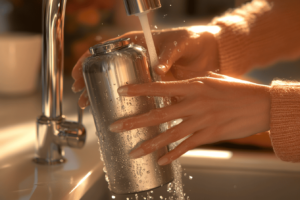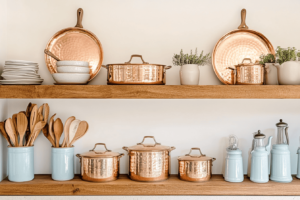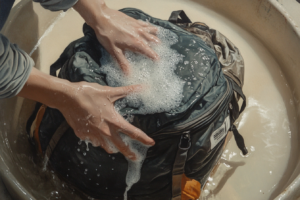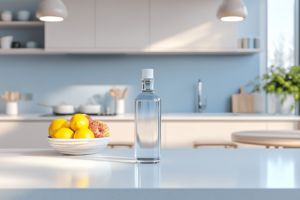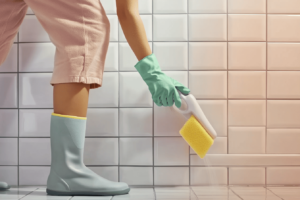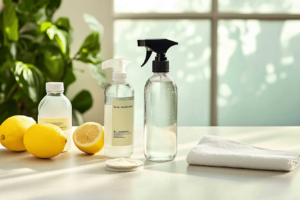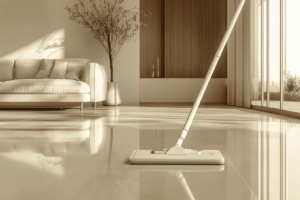Copper has been cherished for centuries for its beauty and versatility. Whether it’s a vintage bracelet, a gleaming saucepan, or a decorative piece passed down through generations, copper adds a warm, timeless touch. However, it can tarnish over time, developing a dull, greenish patina. This is where regular cleaning comes in to restore its signature glow. Let’s explore practical and safe methods on how to clean copper using simple household items. Trust us—your copper treasures will thank you!
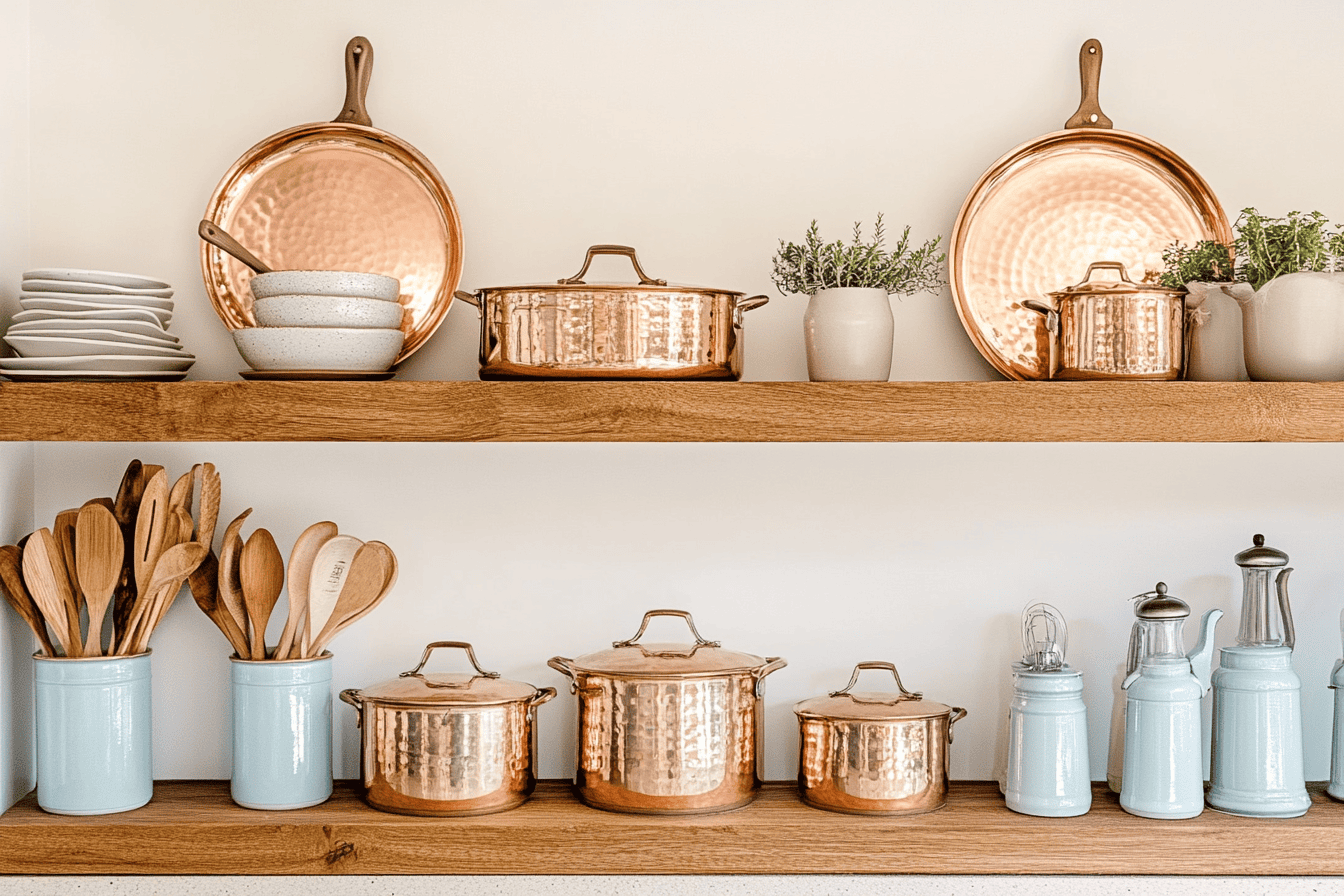
How to clean copper using vinegar and salt
Vinegar and salt are two everyday pantry staples that work wonders on tarnished copper. Together, they form a natural cleaning solution that cuts through grime and oxidation with ease.
Why Vinegar and Salt Work
Vinegar is acidic, and salt adds a gentle abrasive quality. Together, they react with the tarnish to lift it from the surface of the copper. This method is also safe for most items, making it a versatile choice for cleaning.
Creating a Paste
To make your cleaning paste:
- Mix equal parts of white vinegar and salt in a bowl. For small items, start with 2 tablespoons of each.
- Stir until the salt dissolves partially. For a thicker paste, add a little flour—just enough to achieve a creamy texture.
Applying the Paste
Spread the paste over the copper item using a soft cloth or sponge. Focus on heavily tarnished areas but apply gently to avoid scratching.
Waiting and Rinsing
Leave the paste on the surface for 10–15 minutes to allow the ingredients to work their magic. Then, rinse thoroughly with warm water, ensuring no residue is left behind.
Drying and Polishing
Use a clean, dry cloth to wipe away moisture. For extra sparkle, polish with a microfibre cloth in circular motions. If you want that showroom shine, a dab of olive oil can do the trick!
How to clean copper with lemon and salt
When life gives you lemons, clean copper with them! Lemons are a natural acid that can dissolve tarnish effectively, while salt provides gentle scrubbing power.
How Lemons and Salt Complement Each Other
The natural citric acid in lemons reacts with the tarnish to break it down, while the salt enhances the cleaning process by adding grit. This method is not only effective but also leaves a pleasant citrus scent!
Lemon Juice and Salt
- Slice a fresh lemon in half.
- Sprinkle salt liberally on the cut side of the lemon. The salt should adhere to the juice for maximum cleaning power.
Rubbing the Surface
Rub the salted lemon directly onto the tarnished copper surface in circular motions. Don’t be afraid to apply pressure on tough spots. You’ll notice the grime lifting almost instantly.
Rinsing and Drying
Rinse the copper item under warm water to remove residue. Pat it dry immediately to prevent water spots.
Achieving THE shine
To truly make your copper item dazzle:
- Take a microfibre or soft polishing cloth and buff the surface in circular motions. This removes any remaining moisture and enhances the natural glow of the copper.
- For an even more radiant finish, consider applying a small amount of olive oil or beeswax. Buff it gently into the surface for a light protective layer that adds shine and prevents tarnish.
How to clean copper jewellery
Copper jewellery is delicate and requires a gentler touch. Unlike cookware, it can scratch easily, so always prioritise non-abrasive methods.
Why Special Care Matters for Jewellery
Jewellery often contains intricate details and may be mixed with other metals. Harsh chemicals or vigorous scrubbing can cause damage, so use mild solutions and soft materials.
Using a Soft Cloth
Begin by gently wiping the jewellery with a lint-free cloth to remove surface dust and oils. A microfibre cloth works wonders for this.
Creating a Paste
- Combine 1 teaspoon of lemon juice with ½ teaspoon of baking soda to make a gentle paste.
- Mix until smooth—it should feel slightly foamy.
Polishing the Jewellery
Rub the paste onto the jewellery using your fingertips or a soft-bristled brush. Work in small, circular motions to avoid over-scrubbing.
Drying and Storing
Rinse the jewellery under lukewarm water and dry it thoroughly. Store it in a soft pouch or an airtight bag to minimise exposure to air and moisture.
Extra Tip
To prevent tarnish, consider applying a thin coat of clear nail polish to the jewellery’s surface. This creates a protective barrier without altering its appearance.
Cleaning copper pans and pots
Copper cookware doesn’t just look stunning—it also conducts heat brilliantly, making it a chef’s favourite. But constant exposure to heat and moisture can dull its shine. Here’s how to bring it back to life.
Why Copper Cookware Needs Regular Cleaning
Cooking oils, high temperatures, and exposure to acidic foods can speed up tarnishing. Regular cleaning prevents buildup and extends the lifespan of your pots and pans.
Warm Water and Salt
- Fill your sink with warm water and add a tablespoon of salt.
- Submerge the copper cookware and let it soak for 10–15 minutes to loosen grime.
Soaping the Copper Items
Apply a mild dish soap to a non-abrasive sponge and gently scrub the copper surface. Pay special attention to the bottom of the pans, where most stains accumulate.
Rinsing and Drying
Rinse the cookware thoroughly to remove soap and residue. Dry immediately with a clean towel to prevent water stains.
Maintaining Shine
For an added shine, rub a small amount of olive oil onto the surface using a soft cloth. This also adds a protective layer that slows down tarnishing.
Pro Tips for Copper Cookware Care
- Avoid Metal Scrubbers: Steel wool and other abrasive tools can leave scratches that make tarnish harder to remove in the future.
- Don’t Use Harsh Chemicals: Strong detergents can strip away any protective lacquer or natural oils. Stick to mild, natural cleaning solutions.
- Preventive Maintenance: After every use, give your pans a quick rinse and dry. This small effort can save you hours of scrubbing later.
- Line Protection: Many copper pans are lined with tin or stainless steel to prevent food from directly contacting the copper. Be gentle when cleaning to avoid damaging this lining.
- Avoid Dishwashers: Copper items should never go in the dishwasher. The high heat and strong detergents can damage them.
- Store Properly: Keep copper items in a dry, low-humidity environment. For cookware, hanging them can reduce scratches.
Quick Reference Table
| Method | Key Ingredients | Best For | Pros | Cons |
|---|---|---|---|---|
| Vinegar and Salt | Vinegar, Salt, Flour | General cleaning | Affordable, quick results | May scratch delicate surfaces |
| Lemon and Salt | Lemon, Salt | Decorative pieces | Natural, pleasant scent | Requires effort for large items |
| Jewellery Care | Lemon, Baking Soda | Copper jewellery | Gentle on delicate items | Time-consuming for intricate designs |
| Cookware Maintenance | Warm Water, Soap, Oil | Copper pans and pots | Prolongs lifespan, adds shine | Can’t remove deep scratches |
Copper cleaning doesn’t have to be a chore. With a bit of elbow grease and these simple methods, you can restore your copper to its original splendour. Whether you’re tackling heirloom jewellery, decorative accents, or trusty cookware, these tips ensure that your items remain beautiful for years to come. So, why not give your copper a little TLC today? After all, shiny things make life a bit brighter!
Not in the mood for all that scrubbing? No worries—Wecasa’s cleaning experts have got you covered! In just a few clicks, you can book a session and let us work our magic on those copper pans and pots. Sit back, relax, and enjoy the sparkle without lifting a finger. Let’s make cleaning effortless!


